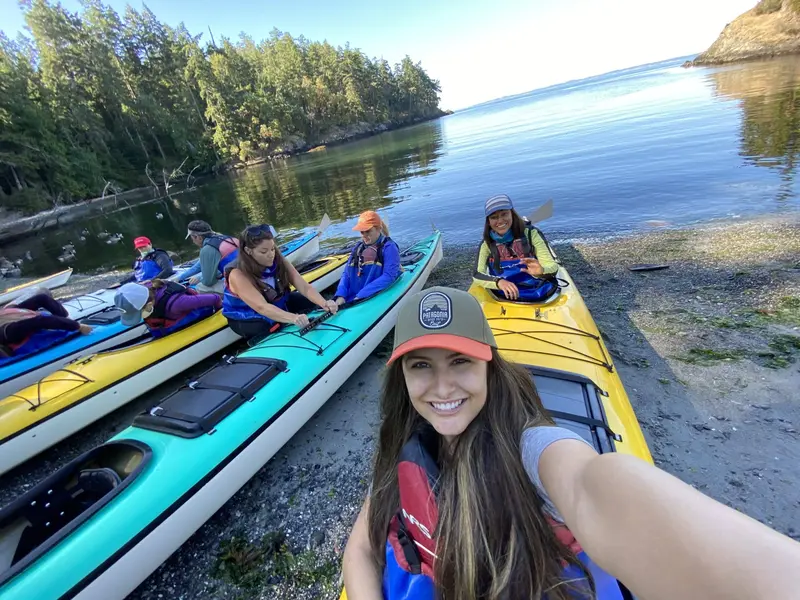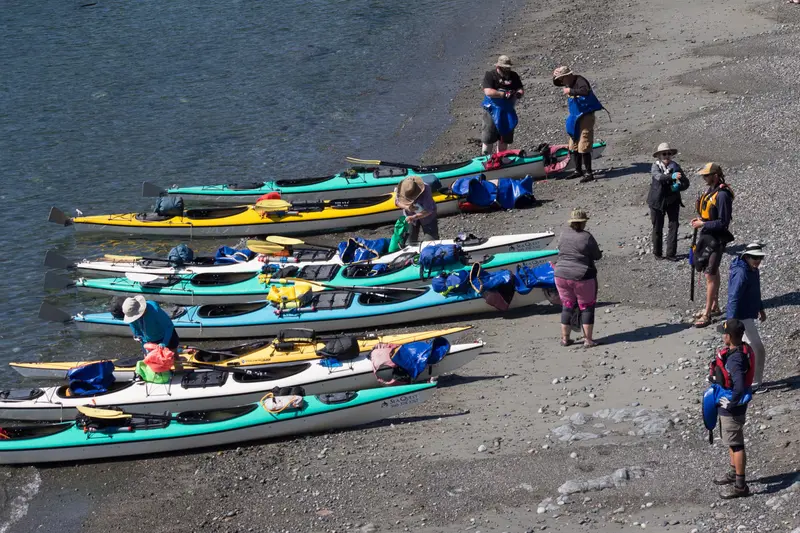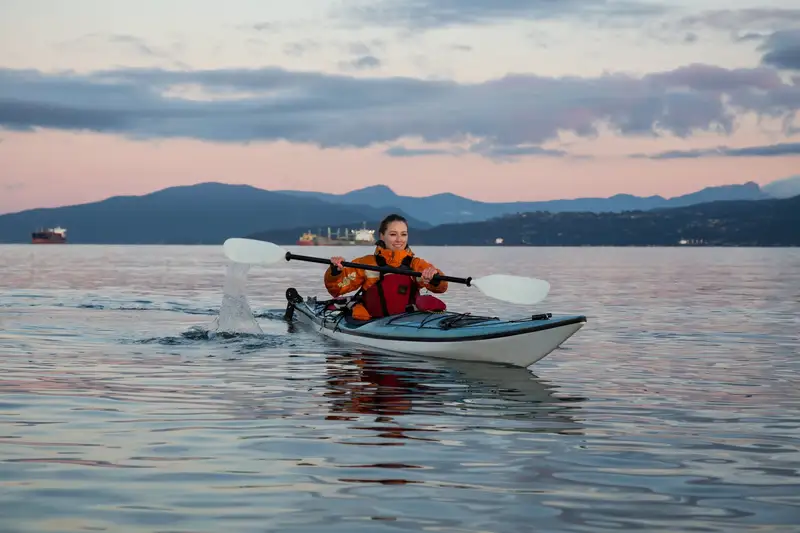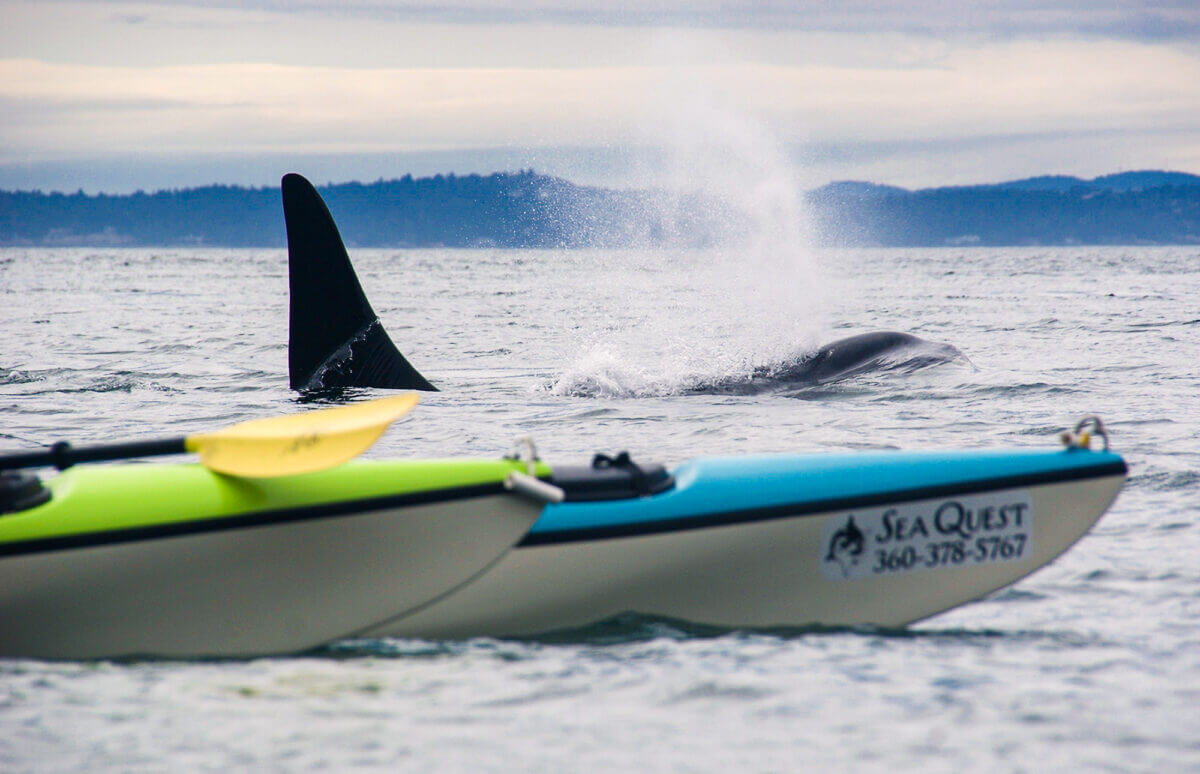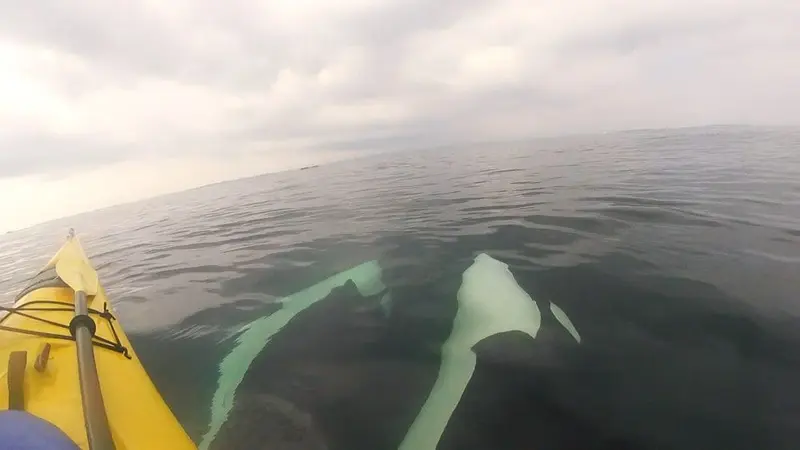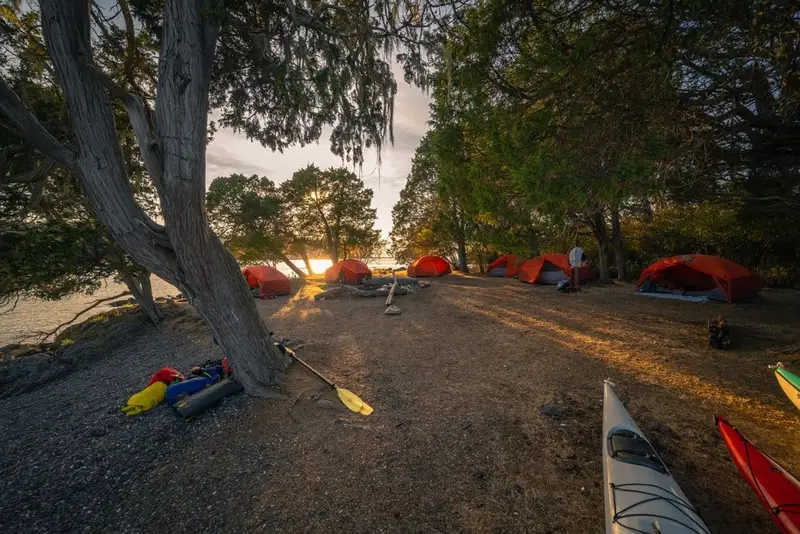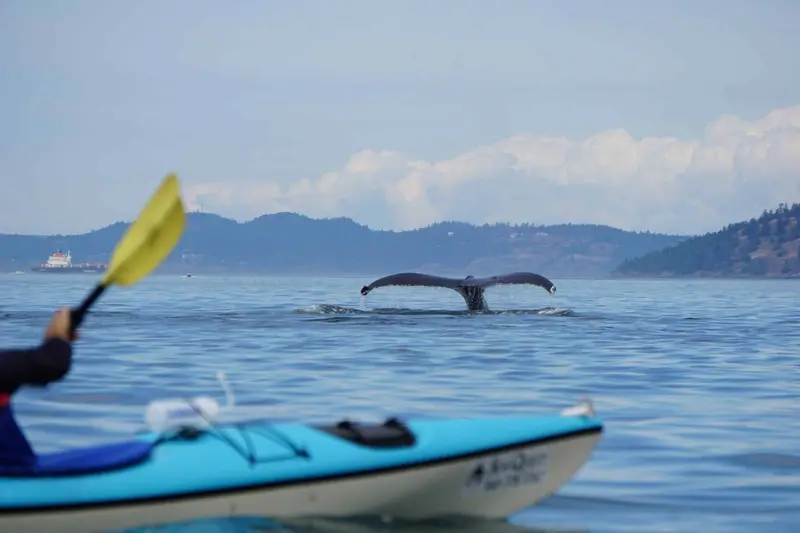To contend with the ever increasing level of noise in the oceans, North Atlantic right whales have recently learned to yell in louder voices to each other. Some biologists are now speculating if orca whales living in our San Juan Islands kayaking routes must do the same.
The discovery of the right whales yelling in the Gulf of Maine was made by recording both the whales’ calls and the background noise using audio data recorders attached to the whales with suction cups. The underwater background noise ranged from 92 to 143 decibels – enough to cause pain to human ears and the equivalent of a rush hour freeway up to a jet engine at 100 meters. The whales altered their calls to compensate for the background noise, taking them from 120dB to 150dB – just as humans do when talking in a loud places.
The main source of the background noise in the Gulf of Maine is commercial shipping that produces a constant low frequency roar. Shipping noise is a particular problem for baleen whales like the right whale, because their calls are roughly the same pitch. The San Juan Islands have less commercial shipping but many dozens of commercial whale watching boats that create higher frequency sounds that are probably much more disruptive to the killer whales’ communications and echo-locations.
Noise levels in the oceans have risen a hundredfold over the past 60 years according to studies conducted off the west coast of the US. Of particular concern are the new navy sonar devices that are much louder than ever before, and seismic testing, both of which have resulted in deaths when used near “toothed whale” species (the suborder that includes several whale families such as beaked whales, sperm whales, and members of the dolphin family including the orca whale). Environmentalists have fought in court to limit their uses near whales with very limited success despite the many documented deaths, including some in the San Juan Islands of Washington state.
Baleen whales rely on their calls for social purposes, to attract mates, and keep in contact with calves. Toothed whales use their calls for the same reasons in addition to coordinating hunts. They use high frequency clicks for echolocation, their main method of finding prey and navigating safely. Unfortunately, we don’t know how much these critical behaviors are being affected by today’s noisy ocean.
If you enjoy watching whales, be sure to do it from silent sea kayaks. Sea Quest’s whale watching kayaking tours do not contribute to the rising noise pollution, nor do they use nasty fuels that leave both air and water pollution in the whales home. Choose the environmentally sound way to watch whales – go on a sea kayaking tour!

